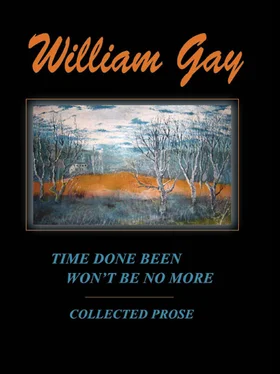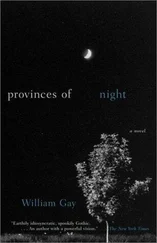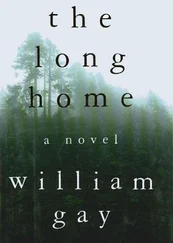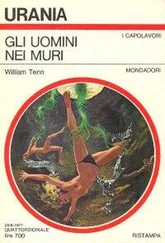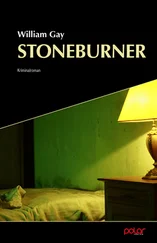That sounds like Dylan, I thought. But the music sure doesn’t. What the hell’s happened here? Dylan hadn’t been in his room for a few months. He was on the road, more changes in the wind.
There was more strangeness around. Changes abounded, they seemed to be the order of the day. I’d been gone 18 months. In days to come I saw men on the streets with hair down to their shoulders, people carrying signs protesting the war. Something’s happening here, but you don’t know what it is, do you, Mr. Jones? I saw rock music on primetime TV, a show called Hullabaloo . The Byrds were singing Dylan, granny glasses, more long hair. McGuinn was even phrasing like Dylan. I saw a duo calling themselves Sonny and Cher. They looked like Brill Building hippies. They were singing a song called I Got You Babe. The words were drivel except for one word. Babe? Where’s that Babe coming from? They’re stealing from Dylan, picking his pocket, ripping him off like a Tijuana pimp. Where’s a cop when you need one?
More calendar pages blowing in the wind, a veritable snowstorm of them. Time passes slowly up here in the mountains, the world goes its weary way. Dylan and I grow older. He’s much on the road these years, identities flicker like frames in a film. He’s a family man, a gypsy rover, a whiteface minstrel, a born-again Christian. He’s an 80-year-old bluesman from the Mississippi Delta: masks shuffle like cars in a deck. I try a few masks of my own.
Then comes a day when the attic is almost deserted. Except for Dylan, the tenants are long gone. Who knows where perhaps they’re winos living like street people. Heroes have feet of clay; they stand on shifting sands. A man must make his own way. A cold wind blows down Desolation Row, the ambulances are long gone, the sweeping Cinderella is so far past the age of being easy, her Bette Davis style is a grotesque vamping.
A man could learn to live listening to Woody Guthrie, Dylan said a long time ago. I believe that this is just as true of Dylan. You could learn to live listening your way through all those albums. Especially if you have an affinity for masks and one-eyed jacks and shifting identities: now you see me, now you don’t.
And you learn to accept growing older. You become aware of mortality. The sun lowers, hovers over the horizon. I got new eyes, Dylan marvels. Everything looks so far away.
Don’t think twice, it’s all right. The more things change the more they stay the same.
A man must make his own way, and you grow too old for heroes. But Dylan and I go back a long way; we’ve been through a lot together, and you never grow too old for a friend, even one you’ve never met.
Presidents come and go, and empires rise and crumble, but Dylan’s still on the road. The never-ending tour rolls on to its inevitable end. But nobody’s giving up here, nobody’s getting old. On Love and Theft , the most recent studio album, Dylan sounds positively rejuvenated, shot full of some kind of goat-gland tonic, funny as Charlie Chaplin, brash as Robert Johnson and wise and fatalistic as Mississippi John Hurt.
So jump into that hopped-up Mustang Ford, babe, and throw your panties overboard. This ride’s not over yet.
And hey girl from the North Country: Goodbye’s just too good a word, babe. So I’ll just say fare-thee-well.
CALVES HOWLING AT THE MOON
— To accept art you have to accept mystery–
I’M NOT AN ARTIST, I just paint for the reasons most people do the things they like, because they’re fun and because of the satisfaction you get when you have completed (or decided you’ve completed) a picture. And because you have an idea in your head, you try to paint pictures that equal it. They never do, but the feeling that you get a little closer each time is part of that satisfaction.
The first painting that ever affected me deeply was by Andrew Wyeth. I was in elementary school, about the fourth grade. Wednesday was library day, and although most of the books were off-limits to fourth graders, I looked forward all week to roaming around the shelves, and picking out titles that I promised myself I would read one day.
The librarian controlled us with an acerbic tongue and a fierce eye, but she liked me for a couple of reasons: because I could refold a newspaper and keep all the sections in order (If he can do that, I don’t know why the rest of you can’t) and because I had once asked her how much she had to pay to be in charge of all those library books.
She noticed that I was always drawing pictures, comic-book panels with Zane Grey Westerners pummeling each other with their fists or battling with six-guns.
She was also the high-school librarian, and one day she brought down from there a coffee-table book of prints of great American paintings. She told me I could take it home and study it for a few days. Look at something besides trash, she said. But don’t tear it. And don’t spill anything on it.
The picture that grabbed me was Christina’s World . Wyeth had painted a woman crouching on a grassy slope, who awkwardly faces away from the viewer, toward a New England farmhouse. Years later I read that the woman was disabled and that Wyeth had painted her climbing the hill in the only means of locomotion available to her. But the knowledge was not necessary to appreciate the painting. What affected me about the painting was its mystery. The background story neither deepened the mystery nor explained it. It was like that Frost poem about stopping by the snowy woods, miles to go before you sleep. The woman seemed affected by the gravity or enormity of something just out of view. To me, as a child, Christina’s World needed an explanatory panel before and following it.
If you’re doing a job for someone, say building a chicken coop, you have to build it the way you were hired to build it. Plumb and square, the size just so. A story or a song or a painting is your own chicken coop and you can build it the way you damn well please.
The first picture I made that I actually thought of as a painting was a present for my father. I was in the Navy then, the Vietnam War was going full-tilt, and I was on a destroyer in the South China Sea. Privacy was hard to come by, and late at night, when everyone except the watch section was asleep, I used to ease down to my work station, the computer room, to read and write. I decided to paint there.
My father had this thing about images of wolves and trains. I guess they represented a yearning for a world free from timeclocks and Sears payments and folks waiting for the food to be set out on the table. Now Christmas was approaching and I was going to paint them: three wolves on a snowy slope, a gauzy yellow moon to bay at, their breath smoking in the icy air.
I was well into it at three o’clock in the morning when the hatch sprang open and my division officer burst through it with a calculator in hand. The ship was rife with rumors that China was coming into the war to aid the North Vietnamese, and the officers spent a lot of time figuring the distance from mainland China and how long it would take jet fighters to reach the fleet. He was inside the room abrupt and sudden, his eyes sweeping for an uncapped bottle, his nose sniffing for marijuana, his ears straining to pick out the diminishing footsteps of naked Taiwanese prostitutes.
What the hell are you doing down here?
Trying to paint, I said.
He looked at the consoles, the walls.
Oh, he said, a picture? You’re painting a picture? You’re not even supposed to be here. You’re supposed to be in your rack, not wandering around the ship all night. We’re at war here, not running some art school. That’s mighty suspicious behavior.
I was just working on a Christmas present for my father, I said.
Читать дальше
